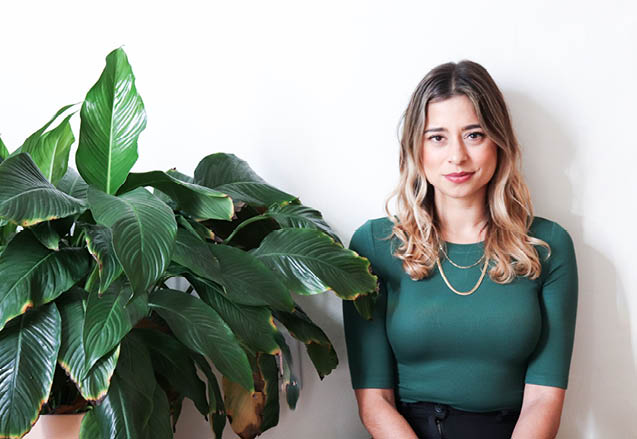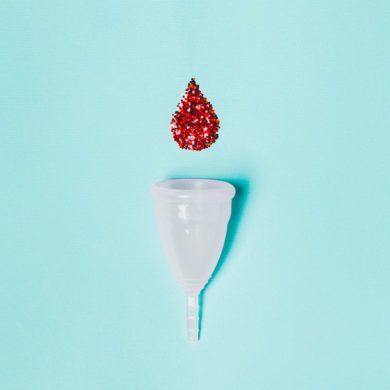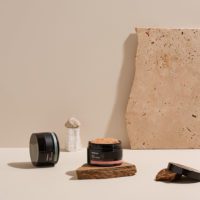When Australian tech founder Isharna Walsh realised her relationship was in a sexual rut, she didn’t just shrug her shoulders and reach for the remote. Instead, she embarked on a five-year journey of sexual exploration that encompassed everything from books and workshops to a tantric course with a 50-year-old new-age guru.
“I was sitting with my partner in this woman’s apartment surrounded by candles and rose petals, and we were chanting into our chakras,” she says on the phone from California, where she now lives. “I really explored all of that, and it was great.”
Although Walsh’s relationship didn’t survive, her odyssey led to the creation of Coral, a new sexual wellness app that promises to help you achieve fulfilment and intimacy. Through written content, community forums and guided aural (and oral) exercises, the app claims to give everyone “the tools and language they need to create their best sex life”.
If your curiosity is piqued, you’re not alone.
Demand for apps and toys to improve our sex lives is booming, with the global sexual wellness category predicted to grow by an impressive 7 per cent a year, reaching $39billion by 2024. You can see it in the new variety of sex products online, at stylishly minimalist stores like maude in the US and joujou here. Where once you’d struggle to find a sex toy that wasn’t phallic and veined, there is now a huge range of discreet and sculptural products that wouldn’t look out of place on the most stylish bedside table.

Meanwhile, podcasts such as The Hotbed Collective and female audio erotica sites like Dipsea are designed to help women feel more comfortable about sex and what turns them on. But “sexual wellness” isn’t just about better orgasms, says Walsh (although it is about that, too): A fulfilling sex life, either solo or partnered, is as important to our wellbeing as good nutrition, exercise and sleep.
“When you look at how sexual satisfaction affects the quality of your life, the data is conclusive,” she says. “A healthy sexual relationship with yourself and others impacts not just your intimate relationships but how you feel about yourself, your body and the quality of your life.” Last month a widely reported study even claimed that women who had regular sex experienced later menopause.
It’s tempting to regard all this talk of sexual wellness as just another excuse to exploit our insecurities and sell us stuff, but there’s some evidence that our collective sex lives are in need of a boost. Millennials are, by some accounts, having less sex than previous generations.
“After two years, one in three relationships are non-sexual, which means having sex once a month or less,” adds Dr Britney Blair, a Stanford clinical psychologist and co-founder of Lover, a new sexual wellness app that launched this month. “There are many reasons for this – if you have, say, an infant and a toddler, I say it’s a matter of ‘doing no harm’ to your relationship and finding moments of intimacy whenever you can. But having some kind of erotic activity every 72 hours has been linked to a better quality of life.”
But while fulfilling sex might be good for us, it hasn’t traditionally been seen as an experience that women were entitled to ask for or expect. “I was raised in a culture that made sex very much about my partner’s experience,” says Walsh, who’s in her early 30s and grew up in Canberra.
“When I realised the sex in my relationship wasn’t great, I also realised how ill-equipped I was to navigate that. I didn’t know how to talk about it in a way that didn’t lead to defensiveness, and I didn’t know what was normal. I had no idea what I had the right to ask for, or what was a reasonable response from my partner.
“Claiming my own sexual pleasure for myself – pulling the guilt and shame away from it – and enjoying my sexuality as just one aspect of my human experience has been the biggest shift.”
“Historically, men were seen as the ones who pursued sex and had a higher sex drive,” says Dr Lauren Rosewarne, senior lecturer in the School of Social and Political Sciences at the University of Melbourne. “When women have owned their sexual appetites and desires, culturally they have been condemned and devalued.”
There’s no better way to feel ashamed and devalued than to visit an old-school sex shop, which was once the only place where women could buy products to help their sex lives. “That whole experience of shopping for those kinds of items is just awful,” says Kate Morris, CEO and founder of Adore Beauty. “It’s not luxe, it doesn’t feel safe, [there are] all these products that are degrading to women. We felt we needed to be part of making this a mainstream discussion, so people can get a bit more curious and a bit more comfortable.”
When I realised the sex in my relationship wasn’t great, I also realised how ill-equipped I was to navigate that
Three months ago, Adore launched a sex section under its ‘Adore You’ website vertical. The section encompasses sex toys (brightly coloured, mostly sculptural) and lube/intimate products (minimalist, stylish – the kind of bottles that would sit happily next to your Aesop cleanser and scrub).
“We were nervous about launching – we thought we might be accused of destroying the moral fabric of society – but the response was universally positive,” Morris says.
So positive, in fact, that the Empress, a clitoral stimulator in look-at-me fuschia, was Adore’s best-selling product across the entire beauty site last week.
Part of the Empress’ success (apart from the very enthusiastic reviews) is down to a blog post on Adore’s site about how the device works, says Morris. “Our approach is to be very factual about things. Unlike Goop, which calls its sex section “Between The Sheets”, we avoid euphemism, and explain a bit about how women’s bodies work. So, the article contains a diagram of where the clitoris is,” she adds.
The Empress was Adore’s best-selling product last week
Morris attributes some of the new interest in sexual wellness and pleasure to a kind of post-#MeToo sense of empowerment, but others aren’t so sure.
“I think there is a problematic tendency to attach #MeToo to anything vaguely to do with women or feminism, and that weakens the point of the moment,” says Rosewarne. She’s similarly dismissive of wellness – “a buzzword largely used to get clicks and sell things.”
Notably, many of the new sex toys and apps aren’t cheap. Adore’s best-selling Empress retails at $110, while Smile Makers’ ‘The Ballerina’, a royal blue ‘vulva vibrator’ that resembles a high-end computer mouse, costs a cool $300.
But investors clearly believe in the market for sexual wellness. Both Coral and Lover have raised significant start-up capital: Walsh says she has accumulated $US3million in investment so far, while Lover launched after a $US5million seed round, with additional investors including Sean Rad, co-founder of Tinder.
“We want to do for sexual health what apps like Calm and Headspace have done for mental health,” says Jas Bagnieswki, Lover’s co-founder. “Empower users, start a new conversation and move the subject into the mainstream.”
While Walsh agrees that wellness can sometimes be perceived as elitist, particularly if you feel the need to kit yourself out with expensive gear to join in, she argues there’s a huge interest among women about sex.
“I think there’s an interesting shift occurring right now in gender roles, and I still think there’s a long way to go before we can claim gender equality has extended to the bedroom,” she says.
Almost half of Lover’s female users are in a relationship and 53 per cent of women who’ve signed up to the site say that they have trouble reaching orgasm.
“Sexual wellness is a form of self-care,” says Blair. “It’s about prioritising your pleasure and seeing sex – either solo or partnered – as doing something positive for yourself. And the more you prioritise it, the more it becomes a part of how you move through life.”














No Comments